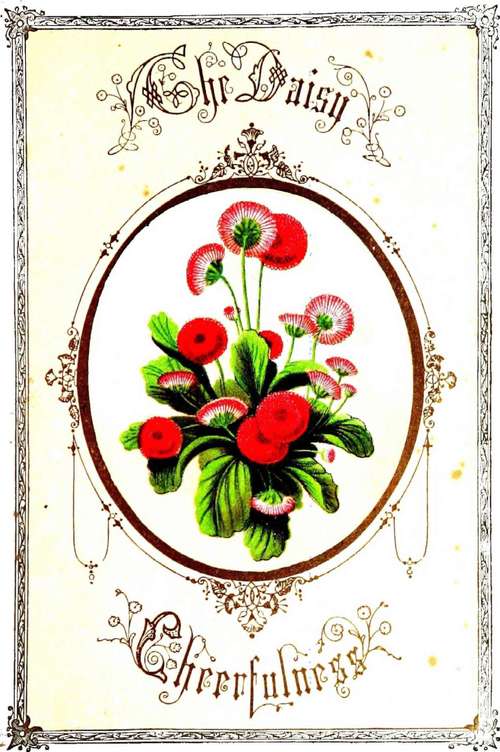The Daisy
Description
This section is from the book "Garden Flowers". Also available from Amazon: Garden Flowers (1857 ).
The Daisy
It is not, perhaps, too much to affirm that there does not grow a floweret in the floral universe more interesting or more consonant with the tender feelings of human nature than th£ Daisy—" that'wee crimson-tipped flower" which, nearly all the long year through, lifts its modest head on every field, and lawn, and mountain side, as if to court the glance and smile of man. Poets, from the earliest ages to the present day, have tuned their lyres to sing the daisy's praise; but, methinks, none have sung more fitly than Chaucer, wlVo sail of it, in language whose simplicity accords with that innocence of which it is the emblem, " the daisy it is sweet." lie could not have said less, 'twas impossible to have said more, for
"Sweetness implies a modest winning grace, That sits in radiant beauty on the plainest face."
Other flowers are indeed more gorgeous, but none more simply sweet and suggestive of tender associations.
Who can gaze on these modest specks of white, with their golden bosses and tips of delicate pink, as they grow in millions on the green sward of England, opening their tiny cups to drink in the glad sunshine, or closing their drooped heads to sleep, as evening falls upon the landscape, without a sense of grateful emotion toVards the floweret whose province seems specially to be to gladden the heart of childhood? and what long gone memories of the past crowd upon the soul, reviving the time when, with staggering feet and bounding hearts, we fell upon the sward and clutched in childish glee clusters of sparkling daisies; when the lambs that frisked upon the hill sides trod them lightly under foot, so lightly that they scarce bruised a single leaf or stem; when kine lowed peacefully in the meadows, and larks sang gaily in the sky! And how vividly do we recollect the deep earnestness with which we studied the art of necklace making* and the glow of pride and joy with which we returned home encircled and festooned with daisies. Ah! sweet, modest gem! well may the human family, with one accord, unite to call thee innocent •

" When, smitten by the morning ray, I see thee rise alert and gay, Then, cheerful flower! my spirits play
With kindred gladness: And when, at dark, by dews opprest, Thou sink'st, the image of thy rest Hath often eased my pensive breast
Of careful sadness."
Continue to:
- prev: Introduction
- Table of Contents
- next: The Tulip
